HISTORIC GARDEN WEEK: THE ETHERINGTON GARDEN
In celebration of the Garden Club of Virginia’s 80th Historic Garden Week, I’m giving sneak peaks at three special gardens on the Richmond tour. Susan Robertson, Laura Valentine and Moonie Etherington have created gardens that reflect their passions and personalities. The Robertson and Valentine gardens were on the Tuesday tour and the Etherington garden is on tour Thursday.
THE ETHERINGTON GARDEN
Moonie and Bill Etherington’s home sits high above the James River, the grounds gracefully sloping toward an outcropping of rock. Far below is the Philadelphia Quarry, now a private swimming club. Stone mined from the quarry was made into retaining walls that sweep across the lawn and form cozy enclosures overlooking the quarry. Moonie, a naturalist and plantswoman extraordinaire, has embraced this rural oasis in the city, creating gardens filled with native plants, which provide a playground for wildlife and her grandchildren.
Moonie’s garden is all about the plants. Each one has a story, each one is treated like a member of the family. A gentle and generous spirit, Moonie shares her plants with friends and strangers — anyone who she knows will love them as much as she does.
Moonie provides birdbaths, bird houses and plenty of food-bearing plants for her feathered friends. Just outside the kitchen door is a bird house that is as often inhabited by snakes as it is by birds.
The Pieris path, along the cobblestone walkway, was planted in 1984 in memory of Moonie’s mother, who loved Pieris japonica and Gardenia.
Moonie tucked Lewisia into the crevices of the rock. She told me that Lewisia is named for Meriweather Lewis because Lewis and Clark discovered it somewhere in Tennessee or Kentucky on their westward journey.
Here, fern fiddlers unfurl, while Lichen and Moss thrive in the cool shade.
Virginia Bluebells (Mertensia virginica) pop behind various native ferns in the woodland garden outside Moonie’s kitchen window.
The bed next to Moonie’s driveway is filled with gifts from special friends. Above, Bearded Iris have made a home in a rotted out stump. Below, are Margaret Bemiss’s special white violets. Moonie’s vigilance has saved the violets from many well-meaning weeders.
Moonie has a deal with the resident deer. She keeps the deer path clear for them, and they leave her spring-flowering shrubs alone. These include Kerria, Deutzia, Calycanthus, Pieris and Quince.
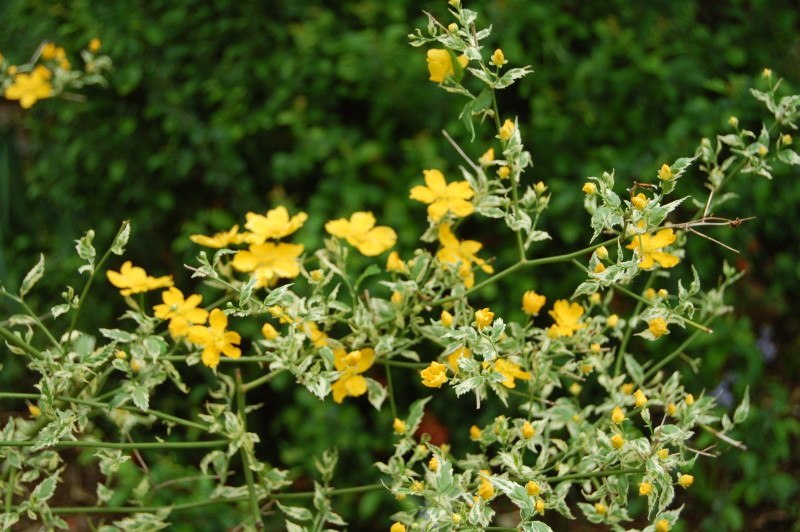 I love this Kerria. It has a single flower and variegated leaves.
I love this Kerria. It has a single flower and variegated leaves.
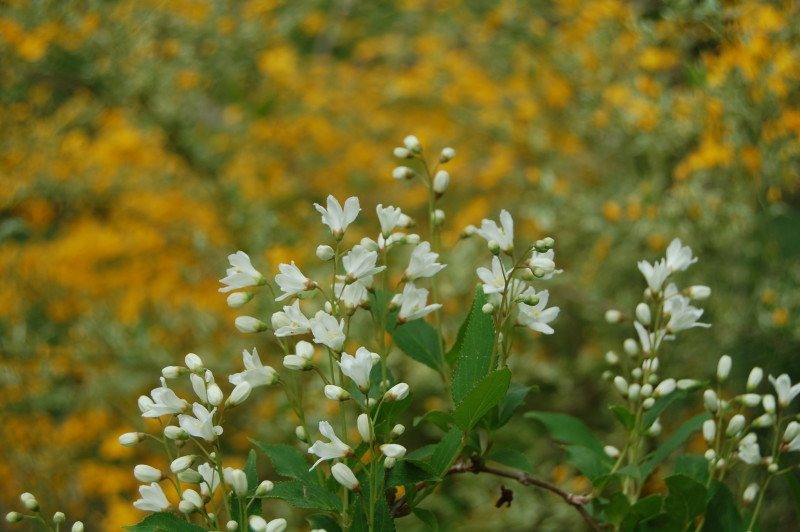 The Kerria looks spectacular next to the Deutzia gracilis.
The Kerria looks spectacular next to the Deutzia gracilis.
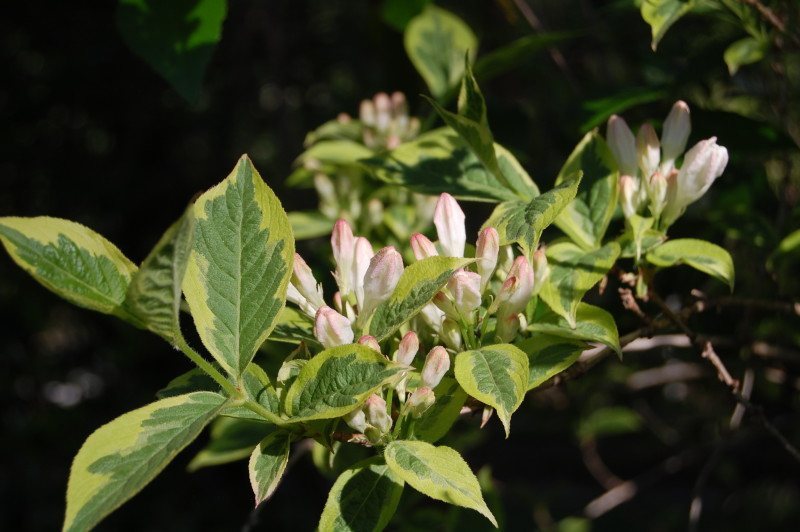 Variegated Weigelia (Weigelia variegatum).
Variegated Weigelia (Weigelia variegatum).
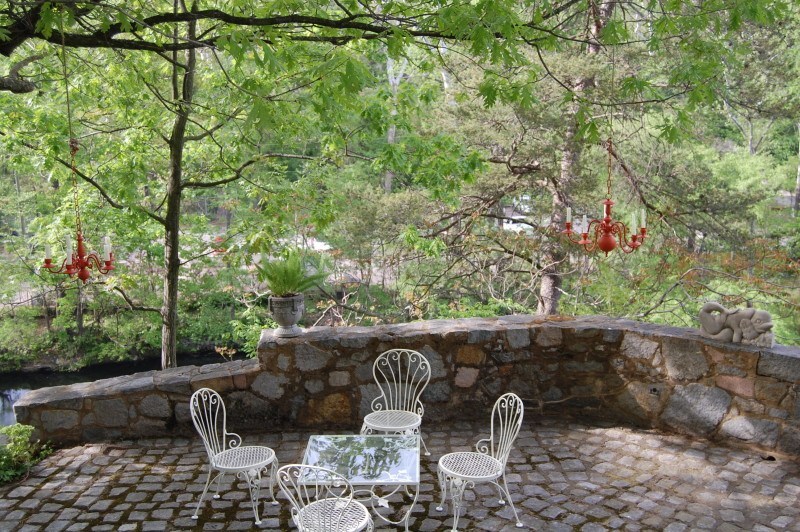 I wonder if the deer have cocktails here when the Etheringtons aren’t looking.
I wonder if the deer have cocktails here when the Etheringtons aren’t looking.
Willie Brown gave Moonie this Moricandia arvensis (Chinese Temple Bells — aka the provocatively named Purple Mistress) when Moonie joined the James River Garden Club. Moonie collects the seeds from this woodland perennial and shares them with friends. She is going to give some to me to plant on Chapel Island. James River Park Manager Nathan Burrell and his team have cleared and built trails on the island and will be planting native woodland plants in a few weeks.
Poet’s Laurel (Danae racemosa) spills over the granite stone steps leading to the house.
Tucked under the shrubs are Trillium (above) and Woodland Poppies from Thomas Jefferson’s Tufton Farm.
Native Columbine (Aquilegia canadensis) has spread under the Dogwood.
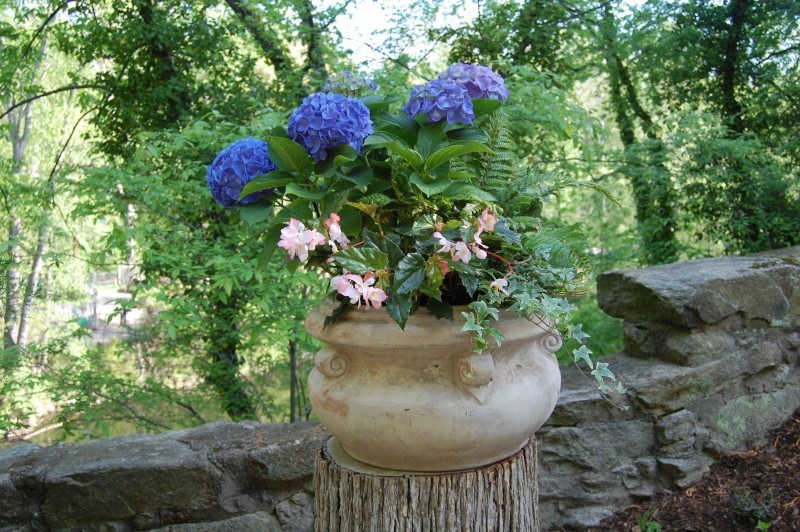 When the Etheringtons lost this tree on the edge of the quarry, they saved some of its wood to make stools for the grandkids, and left the stump in its memory.
When the Etheringtons lost this tree on the edge of the quarry, they saved some of its wood to make stools for the grandkids, and left the stump in its memory.
This stunning Carolina Silverbell (Halesia carolina) was in full bloom last week. As I fretted over whether it would still be in its full glory during the garden tour, Moonie looked fondly at the tree and said, “well, it’s been a joy for me.”
So many women (and men) work countless hours to make Historic Garden Week a success, striving to provide the thousands of visitors a memorable tour of the beautiful houses and gardens. Moonie’s comment brought me back to what Garden Week is all about: celebrating the beauty of this verdant Commonwealth in which we live, and preserving and restoring what brings joy to us every day.

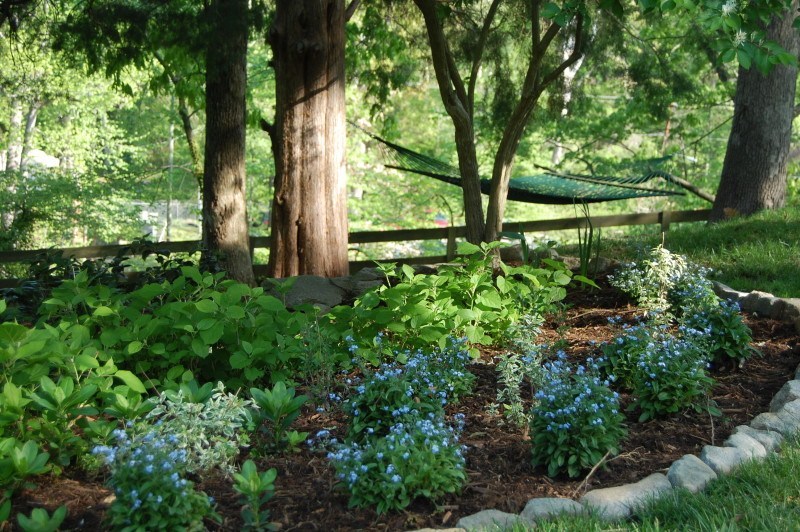
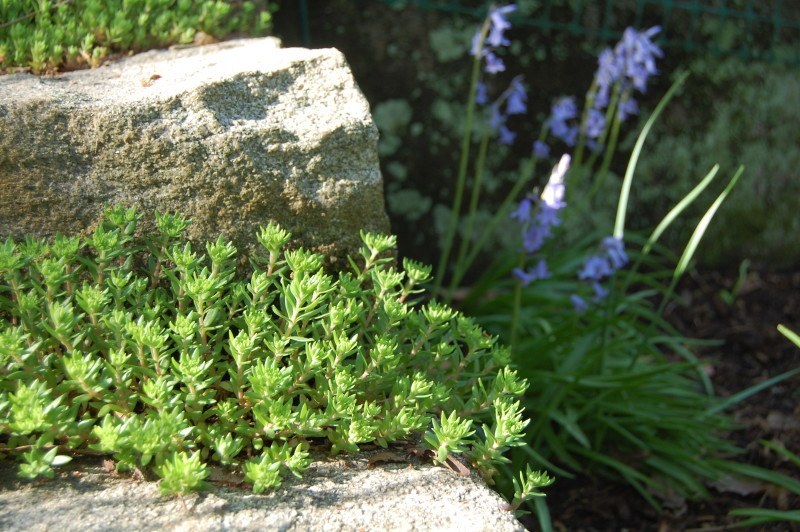
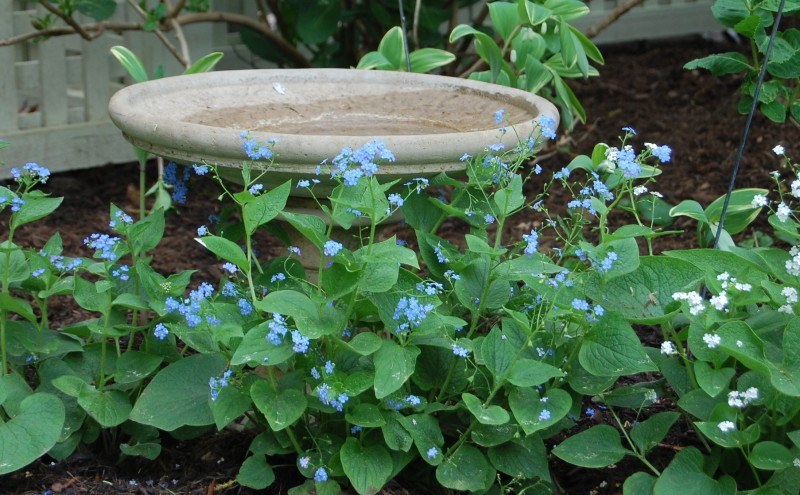
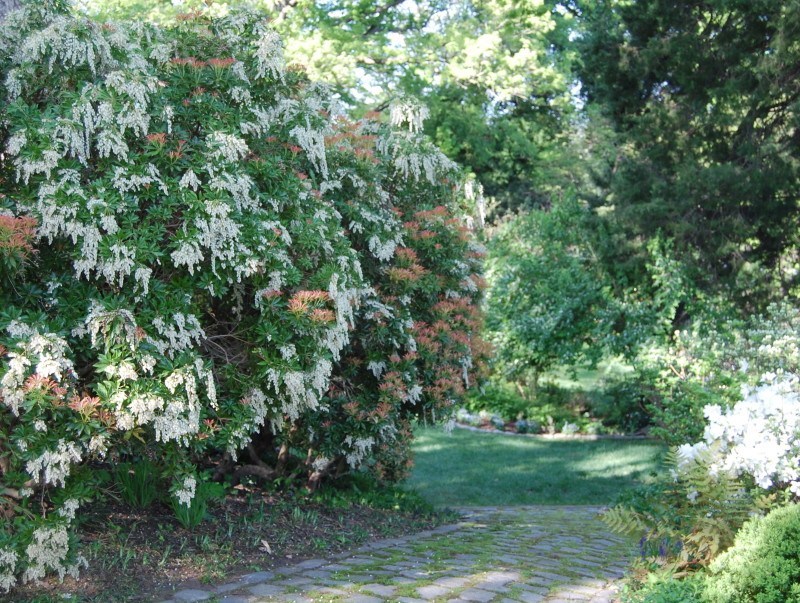
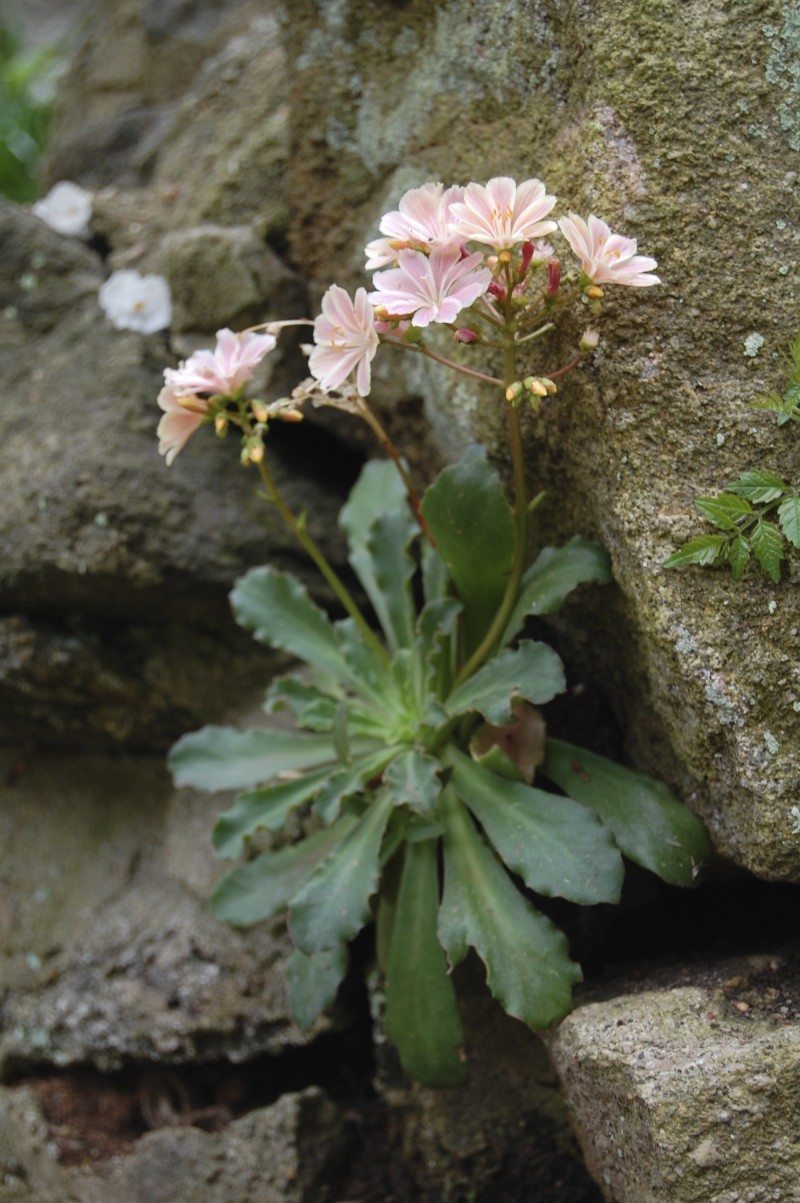
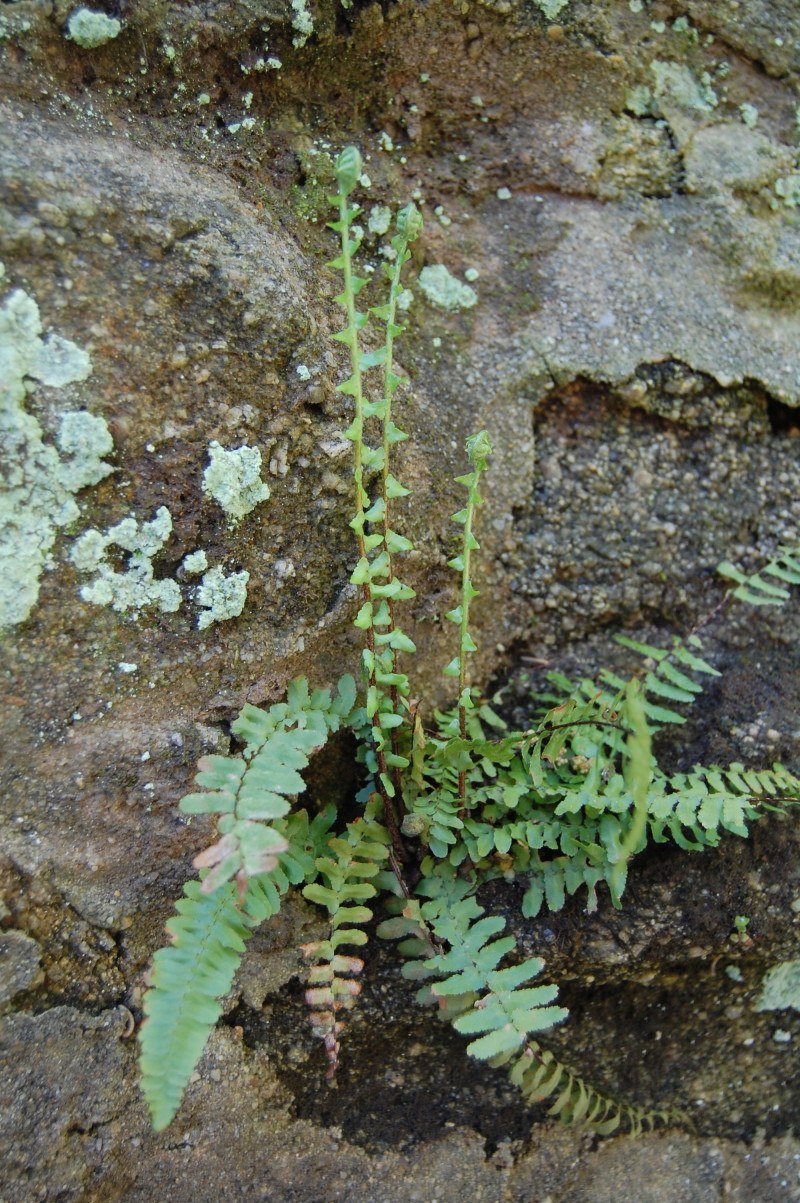
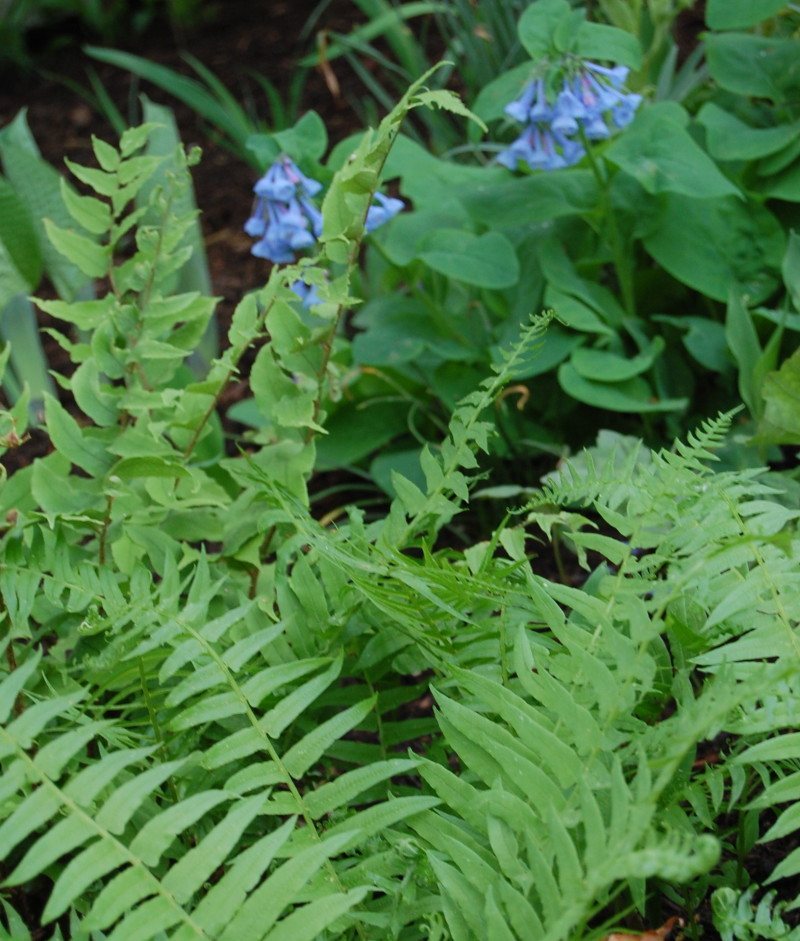
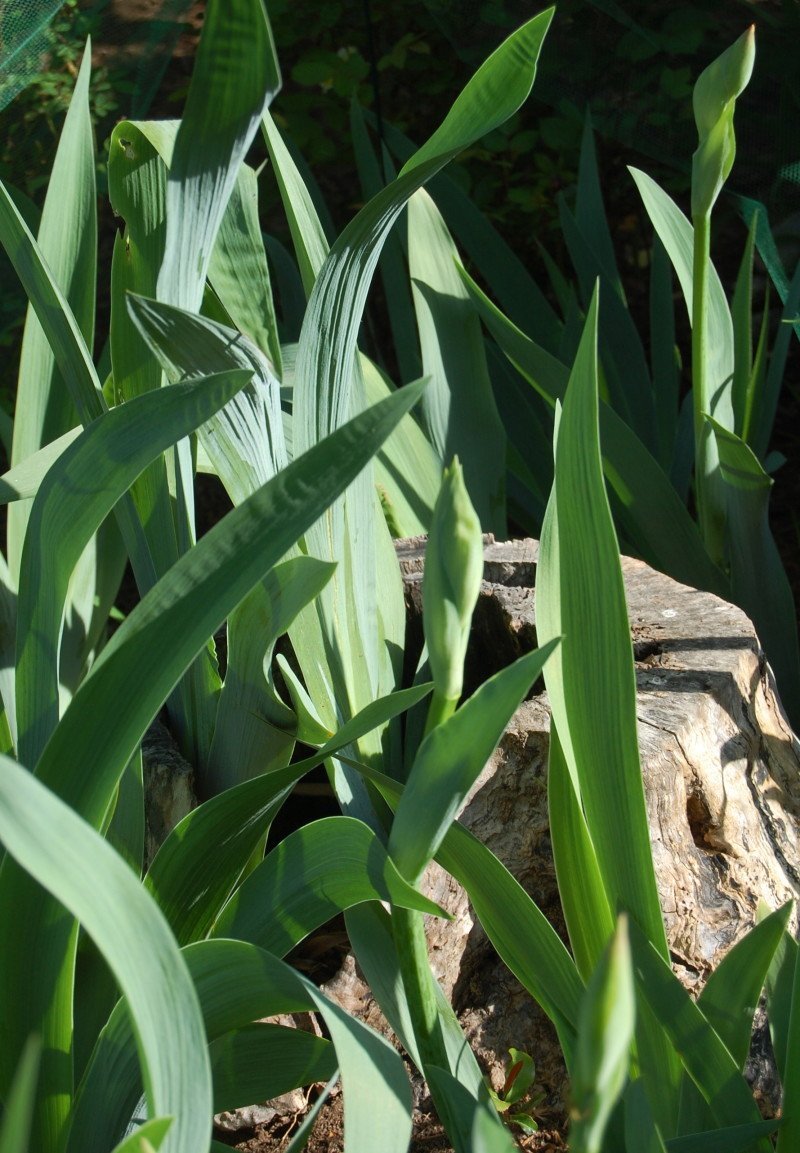
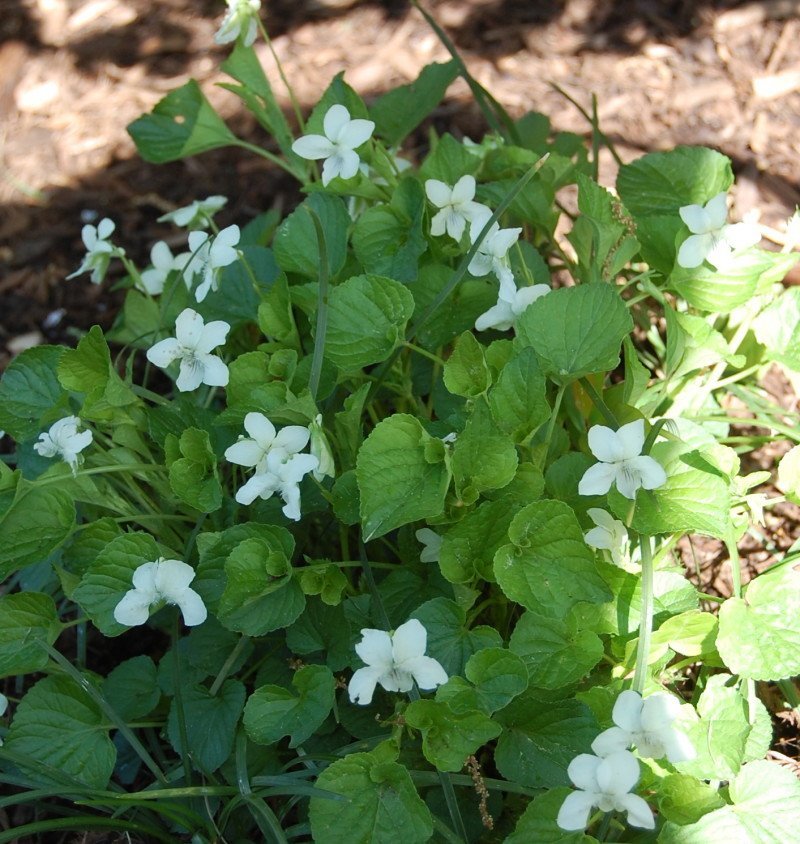
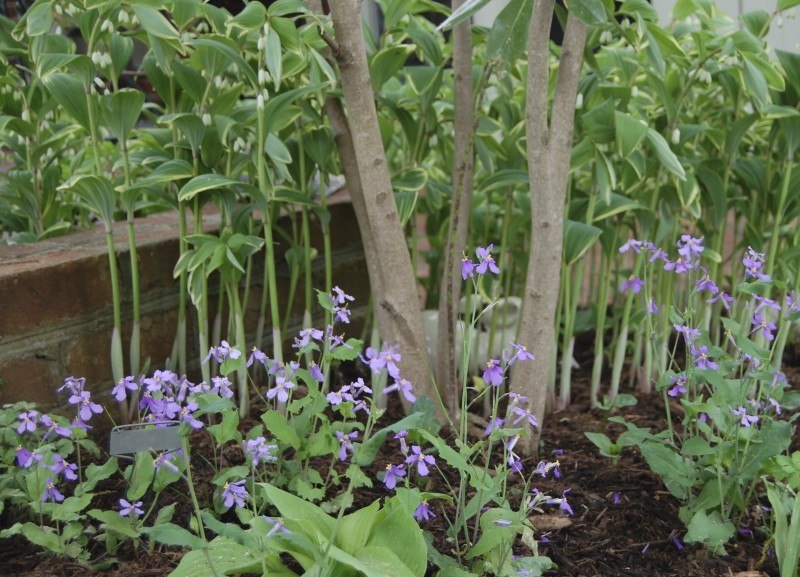
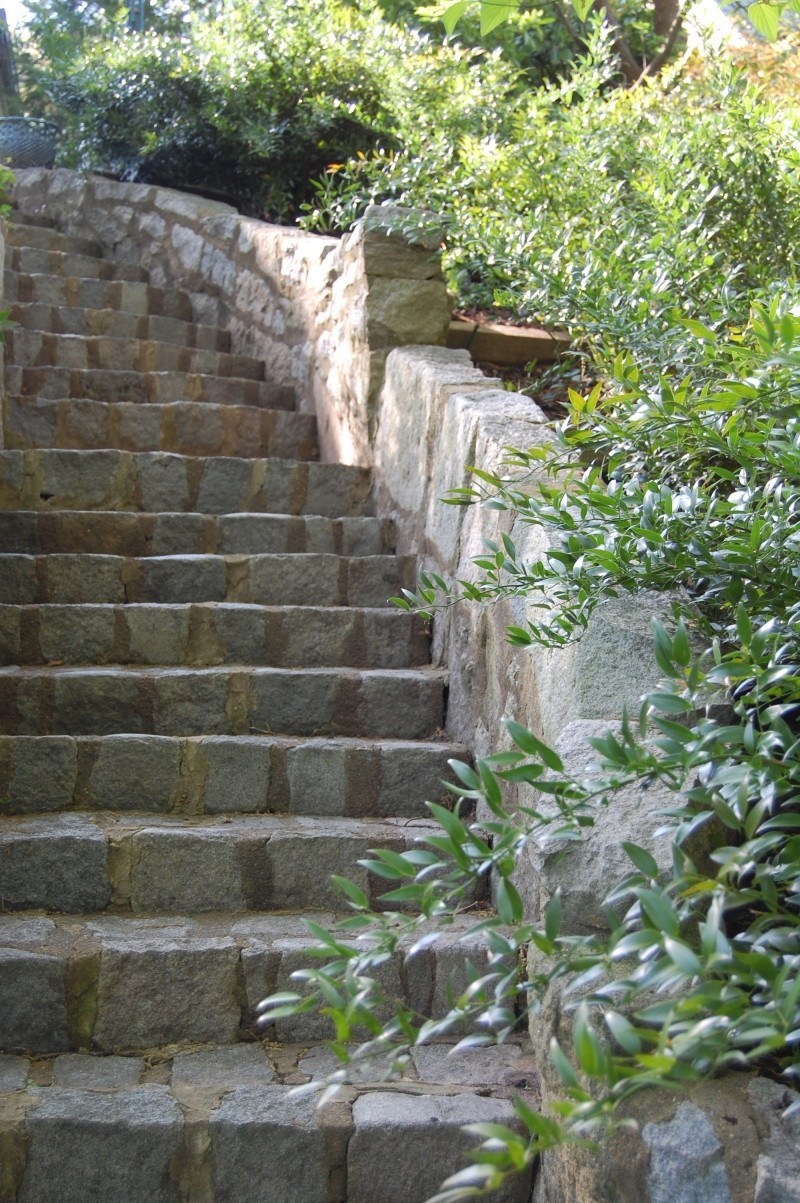
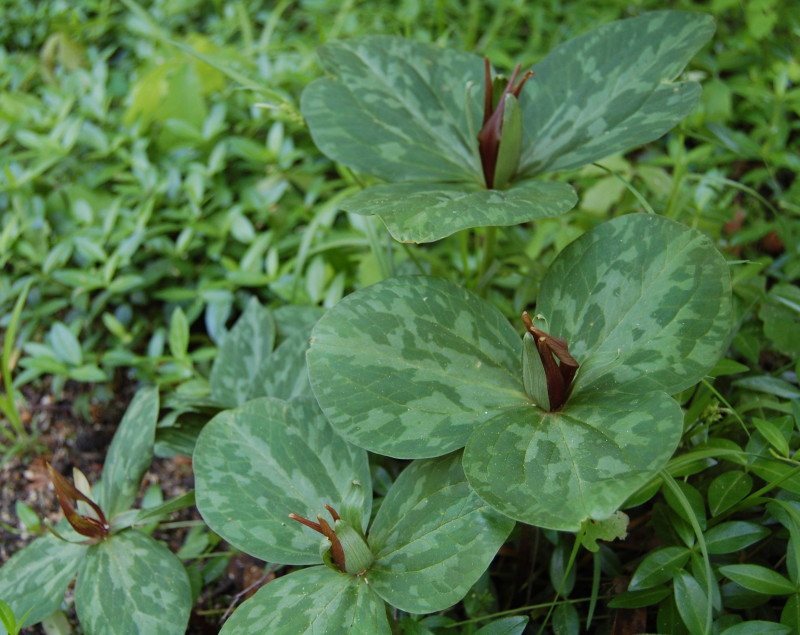
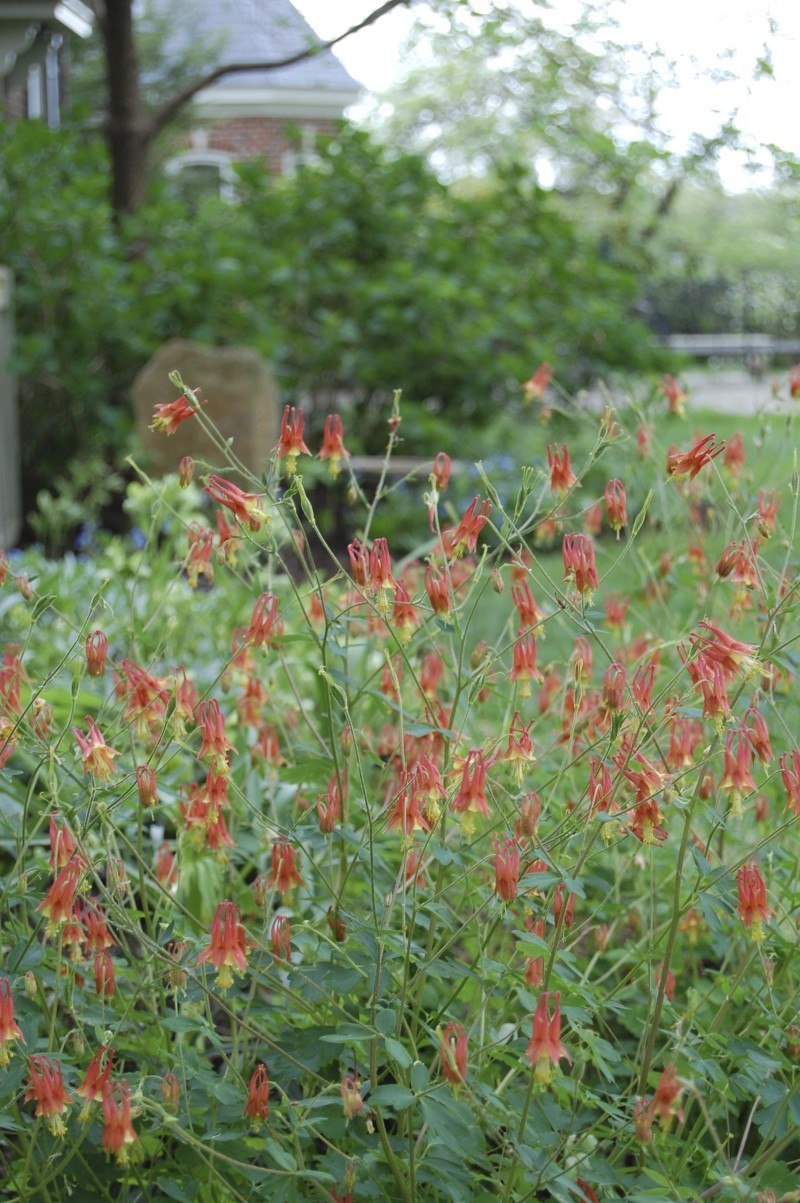
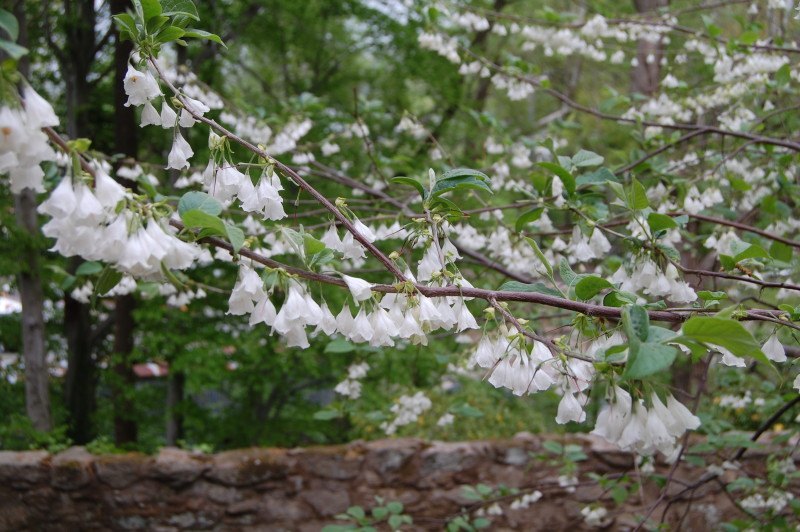


The Laurel is a monthly free arts and culture magazine in the Asheville NC area…might we have permission to use (with credit, of course) the photo of the Halesia Carolina that appears on your website?
Thanks!
paul